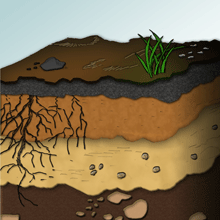Certificate course: sampling waste according to the LAGA PN 98

Course description: Taking samples of waste is a set part of accreditation proceedings of laboratories and engineering offices. However, many testing laboratories and engineering offices discover deficits during their accreditation process, many of which which could be avoided by training their personnel adequately. In these seminars we demonstrate how you can collect samples to ensure quality requirements and meet national and international norms, particularly in line with what is looked at during the accreditation proceedings. The landfill ordinance of 2009 (“Deponieverordnung, DepV” – last reading in October 2011) places new and higher requirements on those who collect samples of waste. The terms of expertise for testers are clearly defined. By taking part in our classes on collecting samples, you can become LAGA PN98 conform.
Target groups: Includes people who sample for testing laboratories and engineering offices, and those in charge of these processes, recycling and waste companies, landfills, organizations and offices

